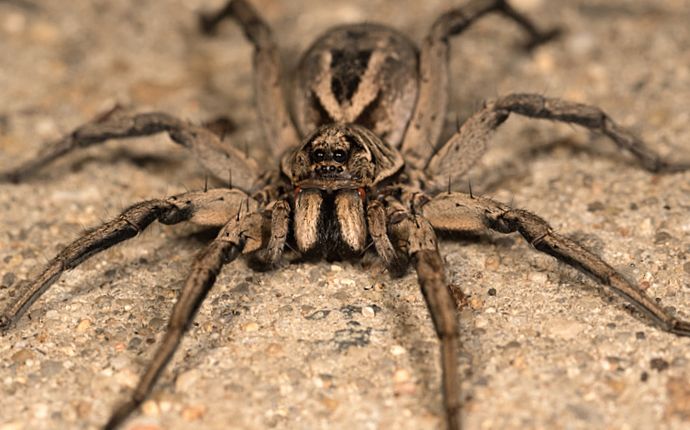Many people suffer from arachnophobia, the abnormal or irrational fear of spiders. Despite this, spiders can be beneficial, eating unwanted insects around your house. They sometimes even eat snakes. However, spiders are a part of a food chain that makes them prey as well.
Once you understand what eats spiders and how spiders fit into your local ecosystem, you can make more informed decisions about which ones to keep and when to call for pest control.
Getting to Know Natural Spider Predators
Spiders are an essential part of your local ecosystem, and natural predators of spiders depend on them as a food source.
Amphibians, Reptiles, and Fish
Many amphibians, reptiles, and fish eat both insects and spiders. Some hunt spiders, while others wait near their nesting places to ambush them. Snakes and lizards like geckos, chameleons, and anoles also help keep the spider population in check.
Birds
Many birds that eat insects also eat spiders. Some spider-eating birds include bluebirds, wrens, sparrows, blackbirds, and crows. However, it’s not just adult birds that eat spiders. Spiders make up 75% of the food that great-tit parents bring their babies.
Mammals
Several mammals eat spiders. Spider-eating mammals include bats and shrews. Monkeys don’t use spiders as a primary food source but eat them as a snack.
Centipedes, Scorpions, and Insects
Centipedes, scorpions, and some insects such as wasps feed on spiders.
Wasp species such as tarantula hawks (or spider wasps) and mud daubers paralyze the spider with its sting and lay an egg inside the spider’s abdomen. Then, when the wasp larvae emerge, they eat the spiders from the inside out.
Some flies and wasps lay their eggs in spider egg sacs so that the larvae have spider eggs to eat upon hatching. Mantispid lacewing larvae find spider egg sacs to eat as one of their first meals.
Other Spiders
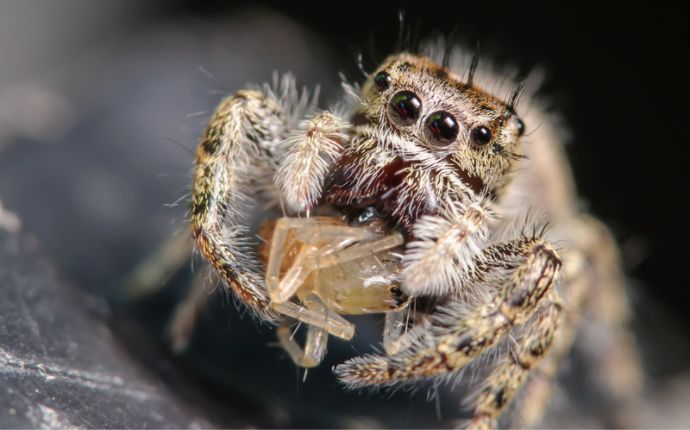
A large number of female spider species cannibalize male spiders after mating with them. Researchers believe this cannibalization happens when male spiders are smaller than female spiders. They make a nutritious post-coital snack, increasing a spider’s chance for paternity.
The most notorious maneater is the black widow spider, who often mates twice before eating her mate.
When male spiders are larger than their mates, they’re more likely to survive mating. However, some male redback spiders sacrifice themselves by throwing their abdomens upon their mate’s fangs.
Household Pets
Some household pets can help control your spider population. Cats, hedgehogs, frogs, lizards, and birds are all good examples. But if your pets aren’t running loose in your home, you may have to do the spider catching yourself.
Humans
In places where people practice entomophagy (eating insects) as a sustainable food source, arachnids may also be on the menu. In Cambodia, fried tarantulas are a delicacy. People also drink medicinal rice wine with live spiders added.
Face Your Fears: What You Need to Know About Dangerous Spiders
When you learn to identify dangerous spiders, you can reduce some of the fear that can come with encountering a spider.
While other spiders are beneficial to have around the house, you will want to call pest control to take care of these dangerous spiders right away.
The Black Widow Spider
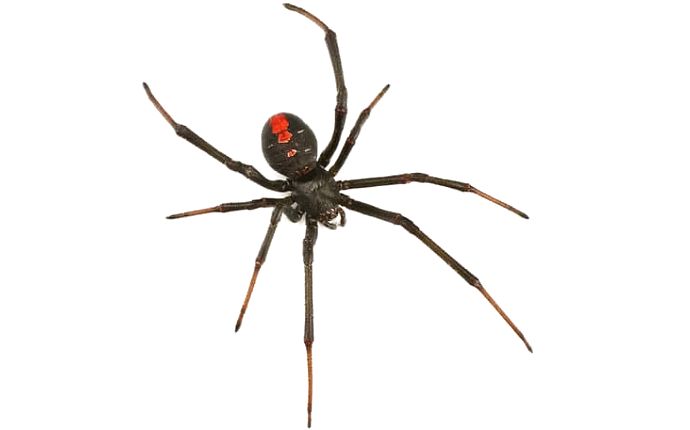
You can easily recognize a black widow from its bulbous dark brown or shiny black abdomen with a red hourglass marking.
The Brown Recluse Spider
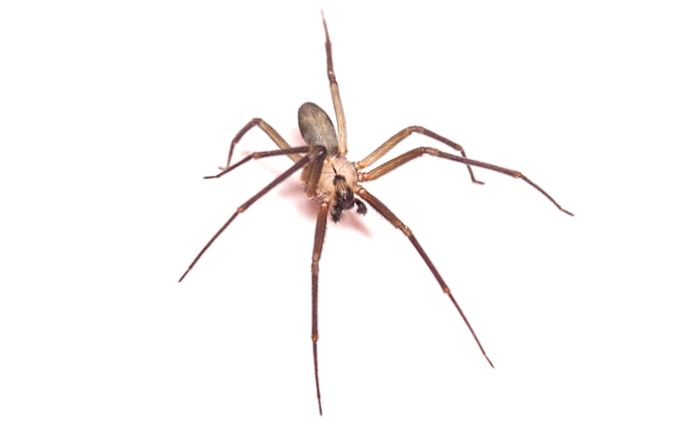
Brown recluse spiders (fiddle backs) are brown and most easily identified by the violin-shaped markings on their backs.
The Hobo Spider
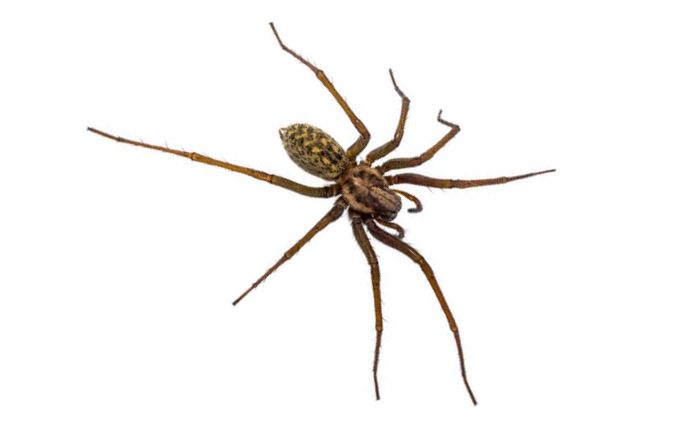
Hobo spiders, or funnel-web spiders, are hairy spiders with brown bodies and yellowish markings on their abdomens. If you see spider legs without hair, it’s not a hobo spider.
The Yellow Sac Spider
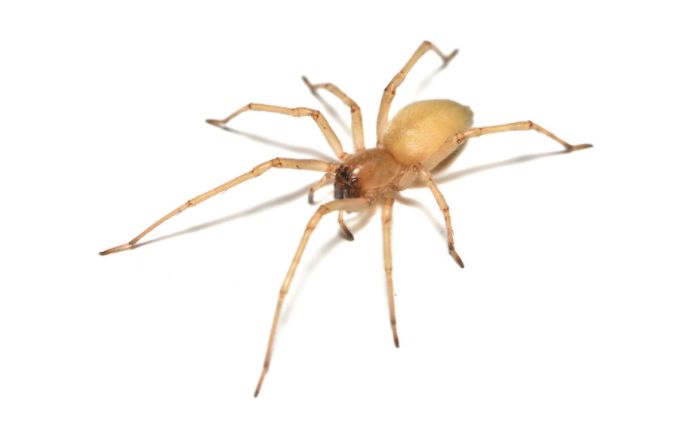
Yellow sac spiders have pale grey, light yellow, or light yellowish green abdomen, which sometimes has a rust-colored stripe. Their heads can be rust-colored or reddish.
Natural Spider Prevention
Spiders are a part of the natural animal food cycle that includes predators and prey. Two natural ways to prevent spiders are allowing other creatures to eat spiders or using chestnuts, mint essential oil, or non-toxic chemicals to deter them from your home.
Experienced, highly-trained pest control professionals can also help with your spider problem. With over ten years of experience, Romney Pest Control can handle any of your pest concerns.
Romney Pest Control provides high-quality residential and commercial pest control services across Texas. Reach out to the experts at Romney Pest Control and let us handle the rest!

